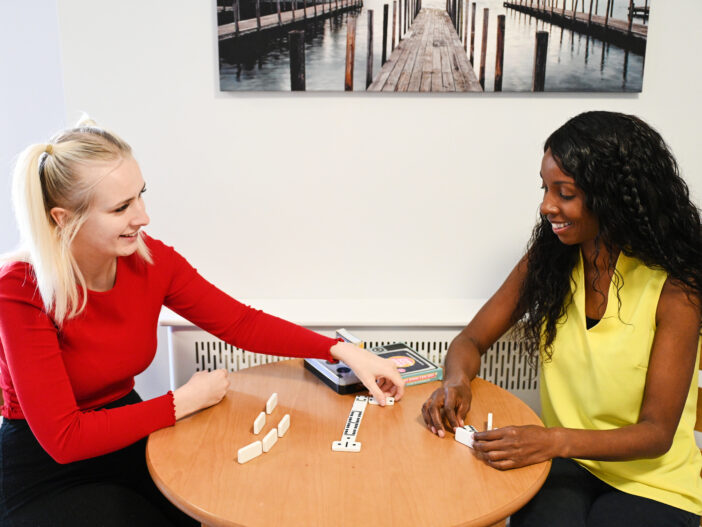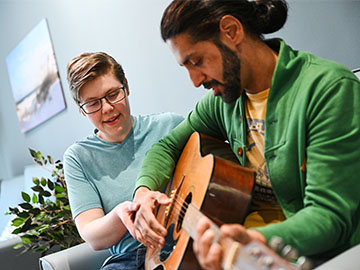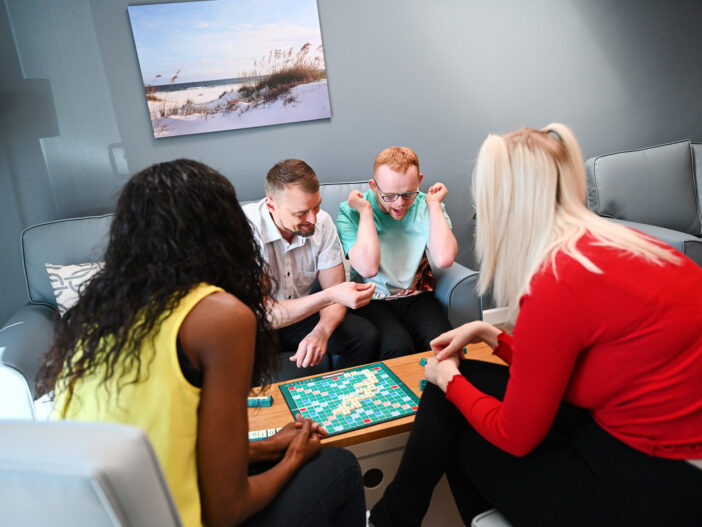Northfield House achieves Advanced NAS accreditation!
We’re thrilled to share that Northfield House has achieved Advanced National Autistic Society (NAS) Accreditation status!
Northfield House is a residential care home in Somerset, providing support for up to 11 adults with autism, cerebral palsy, epilepsy and learning and physical disabilities.
Back in December 2020, Northfield House secured their first NAS accreditation, and since then, the team have been working extremely hard towards achieving Advanced status!
We caught up with Service Manager Sarajane, to hear all about their recent accreditation, what it means for Northfield House, and any tips they have for other services looking to reach the same level!
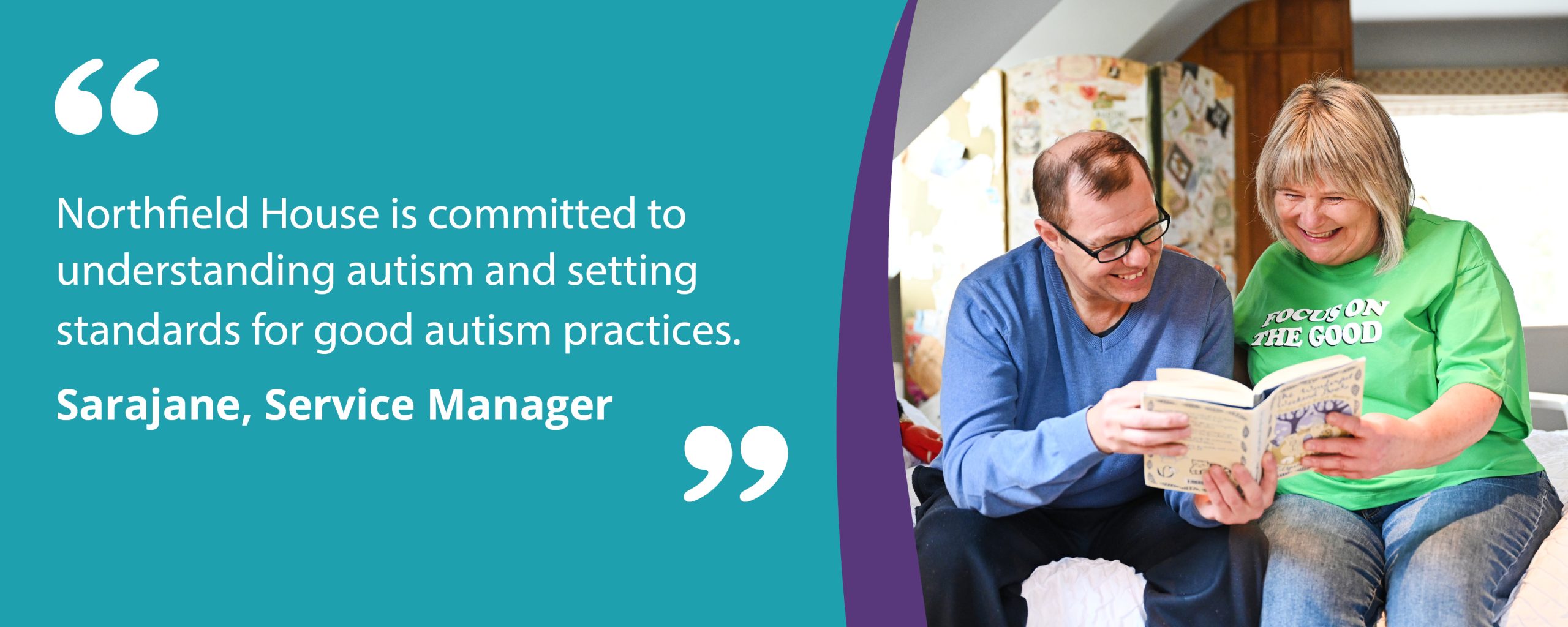
How does it feel to have achieved Advanced accreditation?
It is absolutely amazing and overwhelming! I’m incredibly proud of our service for achieving the Advanced accreditation. Hard work pays off, and I can’t thank the team at Northfield House enough for their input and support surrounding the accreditation.
Achieving this accreditation builds on our wider relationship with the NAS. Internally, the support we received throughout the accreditation process from our National Autism Lead, Raj, was extremely helpful, supporting us every step of the way.
Our main goal was to maintain our existing accreditation level but due to our efforts since we achieved that in December 2020, Raj and the assessor were both confident we could secure Advanced status.
What was the process for being assessed for Advanced accreditation?
As part of the application, we had to provide numerous case studies and evidence to show we are providing person-centred care. This included staff observations and good news stories. Through our case studies, we were able to highlight the support we’ve put in place since our last accreditation, including implementing new systems and different means of communication… but more on that later!
When the assessment came, we had a two-day observation. All the information from that assessment, alongside our application, was then sent to a panel for review. From there, it was down to the panel to decide whether we should receive Advanced accreditation status.
How did Raj, our National Autism Lead, support you?
Raj was fantastic, supporting us every step of the way. We had regular meetings via Microsoft Teams, and he visited the service several times before the assessment to ensure we had everything in place (which we did)! He was also there to support us during both assessment days.
Raj was so helpful all the way throughout the accreditation process, giving us an outside perspective and further input when we needed it.
Did you implement new processes that contributed to your success?
As we already had our standard NAS accreditation, reaching Advanced status involved implementing a few additional actions as a result of our first visit.
We learnt from our previous accreditation feedback and were able to evidence what we’d changed in response to this. This feedback included continuing to implement new systems and different means of communication to work alongside the people we support.
An example of this communication is using a step by step (bullet point) guide with Tim, a person we support to assist him with cooking. The day before he cooks, he sits with a member of our support team and breaks down his cooking tasks into simple, bite size chunks! This allows him to easily follow the tasks step-by-step without becoming overwhelmed.
We also have a visual activity board where another individual uses pictures to choose her daily activities and across the service we use letters to communicate important dates, such as medical appointments. This focus on communication has given us really positive outcomes. It’s reduced anxieties and enabled individuals to attend important health appointments. We’re thrilled to have found new ways to effectively communicate with the people we support!
How did you prepare the people we support for the assessment?
Each individual was fully involved in the assessment, and we discussed with them beforehand what would be involved.
All of our housemates wanted to contribute and be involved in some way, which is fantastic! They wanted the opportunity to speak with the assessor, discuss our systems and tools, and highlight how we have supported them to overcome situations and barriers.
We asked the people we support what activities they would like to do during the assessment day. One individual cooked a meal for the whole service, and the assessor was impressed with the steps we had taken to enable them to successfully do this.
The assessor also attended an activity in the community, which gave him an insight into how we develop life skills such as road safety, cooking and interactions with members of the public. This activity was held at Positive Aims, a community group for individuals from a variety of settings where they can interact with one another while learning key skills.
The assessor observed us in our journey to Positive Aims, seeing how we communicated with the people we support on the way to the activity.
What elements of the report are you particularly proud of?
We are proud of every single part of the report, but our sensory work alongside the people we support is definitely our proudest!
For individuals with sensory impairment, we use a traffic light system when they complete tasks. When we know we’re going to be doing a ‘red activity’ that may be overwhelming for some of the people we support – like going into the community – we complete a ‘green activity’ with them before and after, such as playing with sensory toys.
Using this traffic light system has enabled people we support to attend activities like medical appointments, which at one time would have been unmanageable.
What additional training or learning did you do after your first accreditation?
All colleagues have completed their Autism specialism training, and we are currently looking to implement Oliver McGowan training which focuses on learning disabilities and autism.
The training aims to provide safe, compassionate and informed care to people with autism and learning disabilities. It outlines how health and social care providers registered with the Care Quality Commission (CQC) can meet legislative requirements introduced by the Health and Care Act 2022.
Why is National Autistic Society accreditation so important?
It proves that Northfield House is committed to understanding autism and setting standards for best practice. The NAS Advanced accreditation is the UK’s only autism specific quality assurance programme to support and develop services that are providing autism support.
It gives the people we support assurance that our team know how to support them and their individual needs.
From the team’s point of view, it evidences our knowledge and understanding of autism, meaning we can offer person-centred support to the people living at Northfield House.
What tips would you give to other services approaching NAS accreditation?
Go for it! Raj will be with you every single step of the way.
Ensure that all autism paperwork is up to date and in place for every individual – regularly review this! Always evidence good practices and document when things have gone well alongside when they haven’t – show how you’ve overcome barriers (active support is brilliant for this).
Ensure actions from any previous accreditations are completed, working with your team and the people you support to research and implement new systems that could benefit the care you provide.
To add to this, always involve the people you support. Getting feedback on what they need to achieve their goals can have a huge impact on their lives.
What’s next for Northfield House?
Our assessor implied we could now look towards achieving our Beacon status, which is the highest status you can achieve! This is something we are looking into alongside Raj.
In the meantime, our main goal is to continue providing outstanding care for the people we support, while implementing our additional learning to improve that support even further.
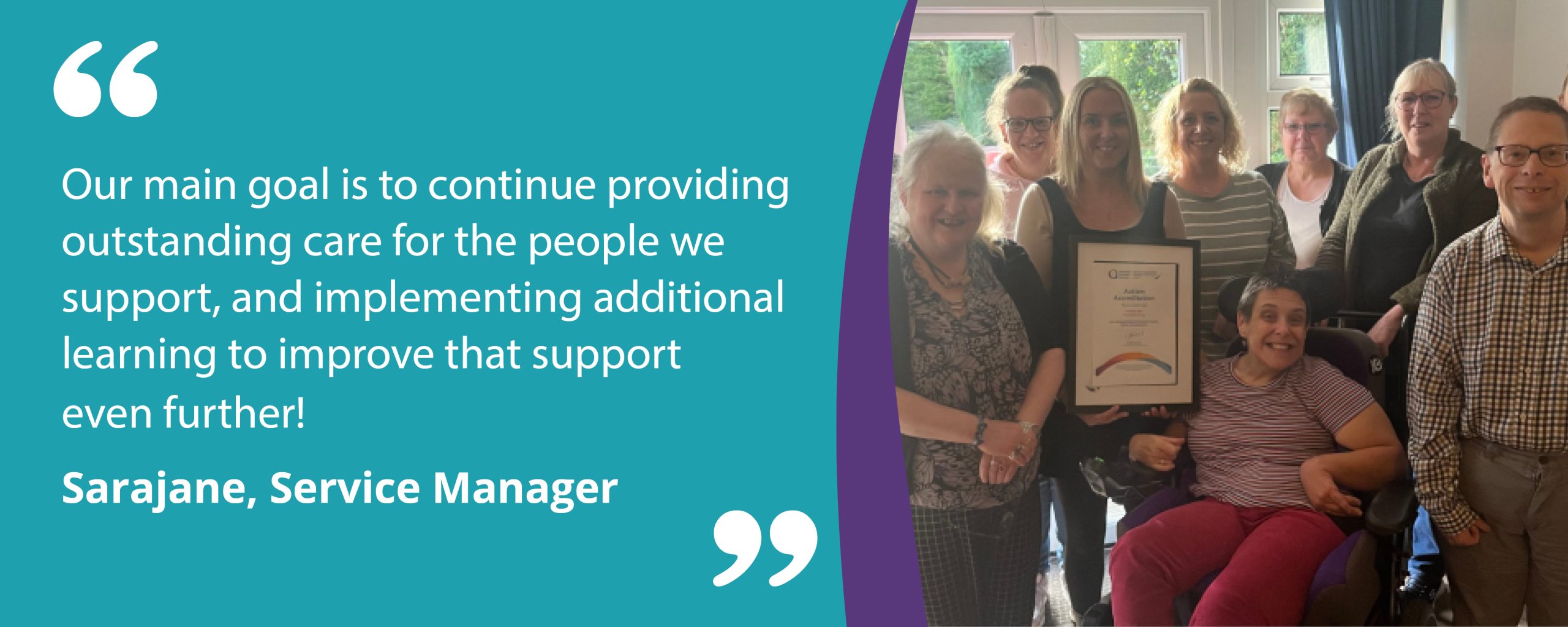
Find out more about our specialist autism support
If you’d like to learn more about how we can support you, a loved one, or a client to live their best lives, complete our quick and easy enquiry form and a member of our team will be in touch!

 News & events
News & events 